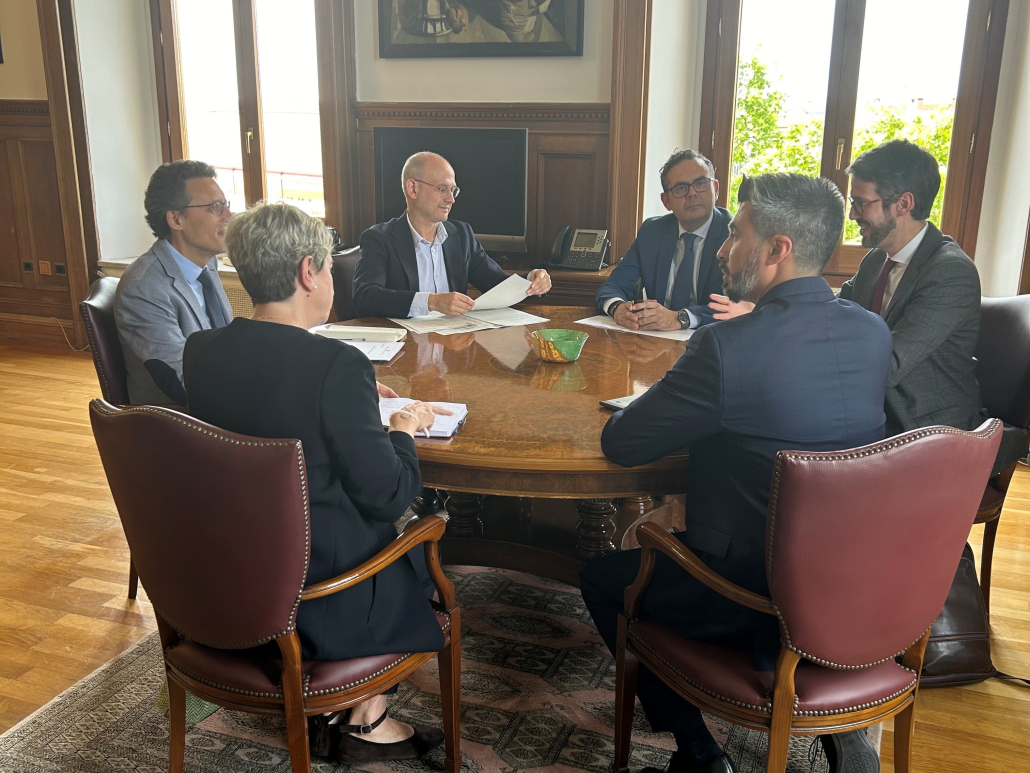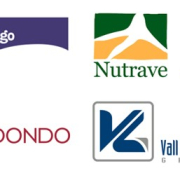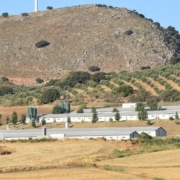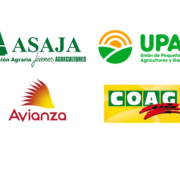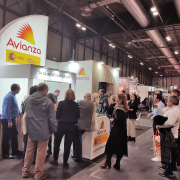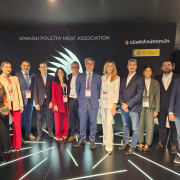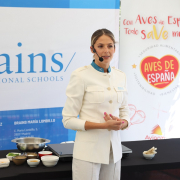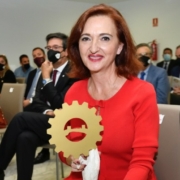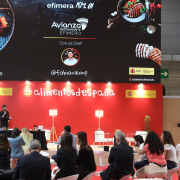LA ALIANZA DE LA INDUSTRIA ALIMENTARIA SE REÚNE CON EL SECRETARIO GENERAL DE RECURSOS AGRARIOS Y SEGURIDAD ALIMENTARIA PARA DEMANDAR UNA MAYOR PROTECCIÓN DEL CONSUMIDOR FRENTE A LOS PRODUCTOS VEGANOS DE IMITACIÓN
ANFACO-CECOPESCA, ANICE, AVIANZA y CEDECARNE lanzaron la iniciativa conjunta #CadaCosaPorSuNombre el pasado mes de febrero. Una actuación con la que pretenden sensibilizar a la opinión pública de los riesgos de un desequilibrio en la dieta ante la desinformación y confusión creada por los llamados productos veganos de imitación
___
Madrid, 13 de mayo de 2024. La alianza estratégica formada por ANFACO-CECOPESCA (Organización del complejo mar-industria1 ), ANICE (Asociación Nacional de Industrias de la Carne de España), AVIANZA (Asociación Interprofesional Española de la Carne Avícola) y CEDECARNE (Confederación Española de Detallistas de la Carne), que representa a más de 150.000 trabajadores, se ha reunido en el día de hoy con el Secretario General de Recursos Agrarios y Seguridad Alimentaria, Fernando Miranda, para presentarle la iniciativa conjunta #CadaCosaPorSuNombre y demandar acciones concretas al gobierno de España en defensa de los consumidores.
El objetivo principal de esta iniciativa es sensibilizar a la opinión pública sobre la verdadera composición de dichos alimentos veganos y abogar por la necesidad de una acción por parte de las Administraciones Públicas, tanto a nivel de Consumo, revisando los lineales españoles bajo la normativa de información alimentaria para el consumidor en cuanto a menciones del envase o publicidad del producto, como desarrollando nueva legislación específica a escala nacional y europea.
La reunión se sucede a la mantenida el pasado 20 de febrero con la Dirección General de Consumo, y la petición a la AESAN de una Nota Interpretativa para la opinión pública que ayude a promover una adecuada comprensión de sus valores nutricionales y los impactos que sobre la dieta puede provocar un desplazamiento de la proteína animal que es imprescindible para nuestro organismo, junto al resto de micronutrientes esenciales.
En primer lugar, durante la misma se debatieron las posibilidades que, sobre el marco legislativo actual (Reglamento (UE) 1169/2011), permite efectuar revisiones de Consumo en los lineales, citando el reciente éxito de colaboración con el Ministerio ante la denuncia del producto de HEURA FOODS que se denominaba como “Filetes de MErlvza”.
A continuación, se analizaron los marcos jurídicos actuales en tanto denominaciones de venta y presentaciones comerciales, y el concepto de evocación o prácticas desleales en publicidades comparativas (Directivas 2006/114/CE y 2005/29/CE), sugiriendo la necesidad de una regulación a escala nacional que proteja las denominaciones si no incluyen dicha proteína animal en tanto a la especie científica que aplique. Además, se revisaron legislaciones que debieran tenerse en cuenta, como el Real Decreto 474/2014, de norma de calidad de derivados cárnicos, o el Real Decreto 1521/1984 para productos pesqueros, en tanto se recogen características para dichos productos.
El incumplimiento sistemático sin acción jurídica demuestra que no garantiza la diferenciación de los alimentos de proteína animal, y que se necesita un marco legal actualizado. A este respecto, se estudió el caso de Francia, que recientemente ha elevado al Tribunal de Justicia de la Unión Europea (TJUE), la posibilidad de publicar un decreto en dicha materia, que pretendía evitar la posible confusión o engaño al consumidor al utilizar términos tradicionalmente asociados a productos de origen animal, pero que son de vegetales. Se acordó que una vez se resolviera dicha cuestión en el TJUE, se valoraría una iniciativa similar en el estado español.
Finalmente, se recordó la necesidad de impulsar desde el gobierno de España el desarrollo e implementación del acto delegado recogido en el artículo 36 del Reglamento europeo de Información al Consumidor, 1169/2011, para articular los productos veganos y vegetarianos, como una vía de solución armonizada. Esta petición debe trasladarse a los partidos políticos y europarlamentarios, para que lo activen por la vía de urgencia tras las próximas elecciones del mes de junio. Igualmente, durante la reunión, se ha expuesto el contexto histórico de la disputa entre productos vegetales y lácteos, donde, hasta hace unos años, era común encontrar productos vegetales con denominaciones reservadas para productos lácteos.
Esta situación se resolvió con la Sentencia del Tribunal de Justicia de la Unión Europea de 14 de junio de 2017, que estableció que los productos vegetales no pueden comercializarse con denominaciones como «leche» o «queso», lo cual es considerado un referente obligado para la adecuada protección de otros productos de origen animal. La verdad detrás de los alimentos veganos de imitación Los productos veganos, cada vez más presentes en los lineales de los supermercados, son a menudo promocionados como alternativas más saludables y éticas a los productos de origen animal.
Sin embargo, un análisis detallado de sus ingredientes revela una realidad diferente. Elaborados a partir de proteínas vegetales aditivos y, en algunos casos, aditivos o ingredientes que los harían considerarse ultraprocesados, estos alimentos están diseñados para imitar y desplazar a sus contrapartes de origen animal. A través de estrategias publicitarias engañosas, se presentan como opciones beneficiosas para la salud y el medio ambiente, utilizando denominaciones como «atún o pollo vegano» realizando afirmaciones sobre supuestos beneficios globales de tipo ambiental no sustentados en datos contrastables. Desde el punto de vista nutricional, carecen de los beneficios de los productos de origen animal, que ofrecen una matriz digestiva única, rica en proteínas de alta calidad, nutrientes esenciales y ácidos grasos Omega 3, como en los pescados azules, o vitamina B12 en carnes, que los alimentos veganos no pueden igualar.
Adicionalmente y como trabajo en paralelo, la recién publicada directiva 2024/825 relativa a empoderamiento de los consumidores para la transición ecológica, aportaría nuevos caminos para la tipificación de conductas que serán estudiadas. Existe una falta de certificación que respalde las afirmaciones de sostenibilidad de estos productos, planteando serias dudas sobre su impacto real en el medio ambiente.
En este contexto, se subraya la contribución vital de la industria alimentaria española a la economía y el bienestar social, así como sus estándares reconocidos a nivel mundial en términos de responsabilidad y bienestar animal.
La iniciativa #CadaCosaPorSuNombre recuerda los beneficios de la dieta mediterránea, y que el consumidor tenga acceso a productos auténticos.
